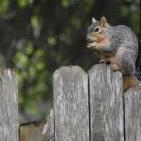About KalviNNN'™
- Birthday 30/03/2003
Title
-
Walking Dead Zm : 89.44.246.20
Contact
Informations
-
Gender
Male
Recent Profile Visitors
954 profile views
KalviNNN'™'s Achievements
Newbie (1/14)
30
Reputation
-
abdo. started following KalviNNN'™
-
A.N.R Anouar A.N.R started following KalviNNN'™
-
[N]audy started following KalviNNN'™
-
么 ANGRRY started following KalviNNN'™
-
KalviNNN'™ changed their profile photo
-

Battle [HardWay vs Arcadionn] [Winner Arcadionn-]
KalviNNN'™ replied to ʋσʀтεx™♛'s topic in GFX Battles
V2 Blur , Text -
JoLLY started following KalviNNN'™
-
ITS OZX- started following KalviNNN'™
-
Tr1pL39 started following KalviNNN'™
-
!laZa RoV started following KalviNNN'™
-
=(HALK.MaN)= started following KalviNNN'™
-
Welcome To Csbd Enjoy
-
UK Foreign Secretary Boris Johnson has suggested Russia may have committed a war crime in Syria if it was behind an attack on an aid convoy near Aleppo. He told the BBC's Andrew Marr Show that it was right to ask whether Russian forces had deliberately targeted civilians. Eighteen lorries and a warehouse were destroyed and 20 people killed in last Monday's attack. Russia denied responsibility, blaming rebel shelling or a US drone. Mr Johnson also said Russia was "guilty of protracting" the war in Syria and of "making it far more hideous". Islamic State conflict in maps Why Assad wants to take Aleppo Syria's White Helmets win peace award Children suffer horrors of Syria's war Aleppo: Key battleground in Syria's war His comments came as Aleppo sustained heavy bombing, with the Syrian government saying it had launched an offensive to retake rebel-held areas. In the latest fighting, rebel forces in the city were reported to have retaken the Palestinian refugee camp of Handarat, on elevated ground north of the city. The strategic area fell to government troops on Saturday. The UN Security Council is due to meet on Sunday morning in New York to discuss Aleppo. The meeting was requested by the US, the UK and France. 'Firing the revolver' United Nations special envoy Staffan de Mistura described last week's attack, on an aid convoy and Syrian Arab Red Crescent warehouse outside Aleppo, as an "outrage". The US said two Russian warplanes were involved in the attack. Mr Johnson appeared to go further, saying the convoy could have been deliberately targeted. Russian President Vladimir Putin was "not only... handing [Syrian President Bashar] Assad the revolver", he told the BBC's Andrew Marr programme. "He is in some instances actually firing the revolver himself. "We should be looking at whether or not that targeting is done in the knowledge that those are wholly innocent civilian targets. That is a war crime." Damaged building after air strikes on the rebel held Tariq al-Bab neighbourhood of Aleppo, Syria September 24, 2016.Image copyrightREUTERS Image caption Residential areas of Aleppo have borne the brunt of government air strikes The attack prompted the UN to temporarily suspend aid deliveries in Syria. Heavy bombardments of rebel-held areas of Aleppo by government forces have continued throughout the week after a truce brokered by Moscow and Washington collapsed. UN chief Ban Ki-moon was "appalled by the chilling military escalation" in Aleppo, his spokesman said on Saturday. "Since the announcement two days ago by the Syrian army of an offensive to capture eastern Aleppo, there have been repeated reports of air strikes involving the use of incendiary weapons and advanced munitions such as bunker-buster bombs," the statement said. The northern city of Aleppo has become a key battleground in Syria's bloody five-year civil war. The UN says the attacks on Aleppo have left nearly two million people without water. Jump media playerMedia player helpOut of media player. Press enter to return or tab to continue. Media captionA baby boy is rescued from the rubble in Aleppo after a second day of heavy bombing, as Quentin Sommerville reports UK-based group monitoring the Syrian Observatory for Human Rights said 25 people were killed in bombardments on Saturday. Activists say both Syrian and Russian warplanes are taking part in the latest offensive, though Russia has not confirmed its involvement. Russia supports the Syrian government, while the US backs the opposition. The two powers accuse each other of failing to rein in their respective allies on the ground.
-
Isco47 started following KalviNNN'™
-
The first black president of the US has formally opened the first US national museum about the African-American history in Washington DC. Barack Obama said the $540m (£415m) museum represented a "common journey towards freedom". The building, designed by British architect David Adjaye, sits on Washington's National Mall. Mr Obama was joined by his predecessor George W Bush, who signed the bill in 2003 to allow construction to proceed. Speaking at the opening ceremony, Mr Obama urged African-Americans to "come here and see the power of your own agency". "The very fact of this day does not prove that America is perfect, but it does validate the ideas of our founding - that this country born of change, of revolution, of we the people, that this country can get better." Jump media playerMedia player helpOut of media player. Press enter to return or tab to continue. Media captionJohn Lewis : "This place is more than a building - it is a dream come true" Both Mr Bush and his wife Laura addressed the crowd. They were followed by Stevie Wonder, who performed the song Where Is Our Love. Mr Obama then rang a bell belonging to one of America's oldest black churches to formally open the museum. The museum contains 36,000 items, ranging from trade goods used to buy slaves in Africa to a segregated railway car from the 1920s and a red Cadillac convertible belonging to rock'n'roll pioneer Chuck Berry. Why do US police keep killing unarmed black men? While some of the artefacts depict the slavery era, others show how black culture has come to define American culture, says the BBC's Nick Bryant in Washington. Black veterans of the US Civil War first proposed an African-American museum in 1915. However, it was not until 2003 that Congress approved its creation. Construction of the 37,200 sq m building took almost four years. The museum's opening is being celebrated with three days of festivities, including concerts by artists such as rap group Public Enemy and the Preservation Hall Jazz Band. It coincides with the latest protests engulfing two US cities following the killing of black men by police officers.
-
- 1
-

-
Good Luck In Your Life Dude Will Miss You So Much
-
Welcome To CsBlackDevil Have fun
-
Warplanes have carried out fresh air strikes on Aleppo, hours after Syria's government announced an offensive to retake rebel-held areas of the city. Syrian and Russian planes were pounding eastern Aleppo, according to activists. A rescue worker described what was happening as "annihilation". The government has urged people to avoid positions held by rebels. Russia has not confirmed its involvement. US-Russian talks to revive a collapsed truce have broken up without progress. Russia supports the Syrian government, while the US backs the opposition. The two powers accuse each other of failing to rein in their respective allies on the ground. Collapsed building in eastern Aleppo, 21 SeptemberImage copyrightAP Image caption The offensive to retake Aleppo was announced after days of bombardment of rebel-held areas The White Helmets, a Syrian volunteer rescue group, says dozens of air strikes were carried out in Aleppo on Friday morning. The group says the centres set up to help victims of bombardments were being targeted, and three out of four had been put out of action. Why truce was doomed to fail Syria's White Helmets win peace award Children suffer horrors of Syria's war Aleppo: Key battleground in Syria's war The Al Jazeera news agency tweeted that its bureau in the city had been partly destroyed. Announcing the new offensive on state television late on Thursday, the Syrian government warned Aleppo residents to "stay away" from "terrorist positions". Syrian military sources said a ground offensive would follow. One told the Agence France-Presse news agency that the bombardment "could go on for hours or days before the ground operation starts. The timing of the ground operation will depend on the results of the strikes". Army officials said there would be exit points for anyone, including rebels, who wanted to flee. Bitterness on all sides - BBC diplomatic correspondent Jonathan Marcus Russian and Syrian commanders - always sceptical about the merits of the ceasefire - now appear to have been given a green light to sort out the Aleppo problem once and for all. Imagery of the shattered city presents a gaunt vista in which thousands of innocent people remain trapped on both sides. Targeted attacks by government forces against medical and civil defence facilities add another element of horror to the situation. The fact that this new onslaught is taking place against a backdrop of the total failure in the US and Russian brokered efforts to implement a ceasefire in Syria is also significant. In the wake of this failure there is a good degree of bitterness on all sides. This provides space for the stepping up of military action on the ground. Indeed the pause may well have enabled government forces to reposition in key areas and to improve intelligence gathering. The government's warning came after days of air strikes on Aleppo. Syria declared the week-long ceasefire over on Monday. Residents told the BBC earlier this week that barrel bombs had struck rebel-held districts, causing many fires. Dozens of civilians were reported to have been killed. Islamic State and the crisis in Iraq and Syria in maps Thursday night's meeting in New York brought together members of the International Syria Support Group, which includes the US, Russia and other powers. After the talks broke down without agreement, UN envoy for Syria Staffan de Mistura described them as "painful and disappointing". US Secretary of State John Kerry said Washington could not be the only one trying to hold open the door to peace. Russian Foreign Minister Sergei Lavrov accused US-backed rebels of ignoring the truce, and said a new one would amount to a "unilateral pause". Also on Thursday, Syrian President Bashar al-Assad denied claims that he was responsible for the ongoing fighting. In an interview with the Associated Press news agency, he reaffirmed his government's position that a deadly strike on an aid convoy in Aleppo on Monday had not been carried out by Syrian or Russian planes. Mr Assad also ridiculed concern about the army's use of barrel bombs, saying: "What's the difference between different kinds of bombs? All bombs are to kill, but it's about how to use it. When you use armament... you kill terrorists in order to defend civilians."










![[N]audy](https://csblackdevil.com/forums/uploads/monthly_2020_06/lCGU8Xg.thumb.png.45679e2de49e686878288cdf7b53f6f4.png)





